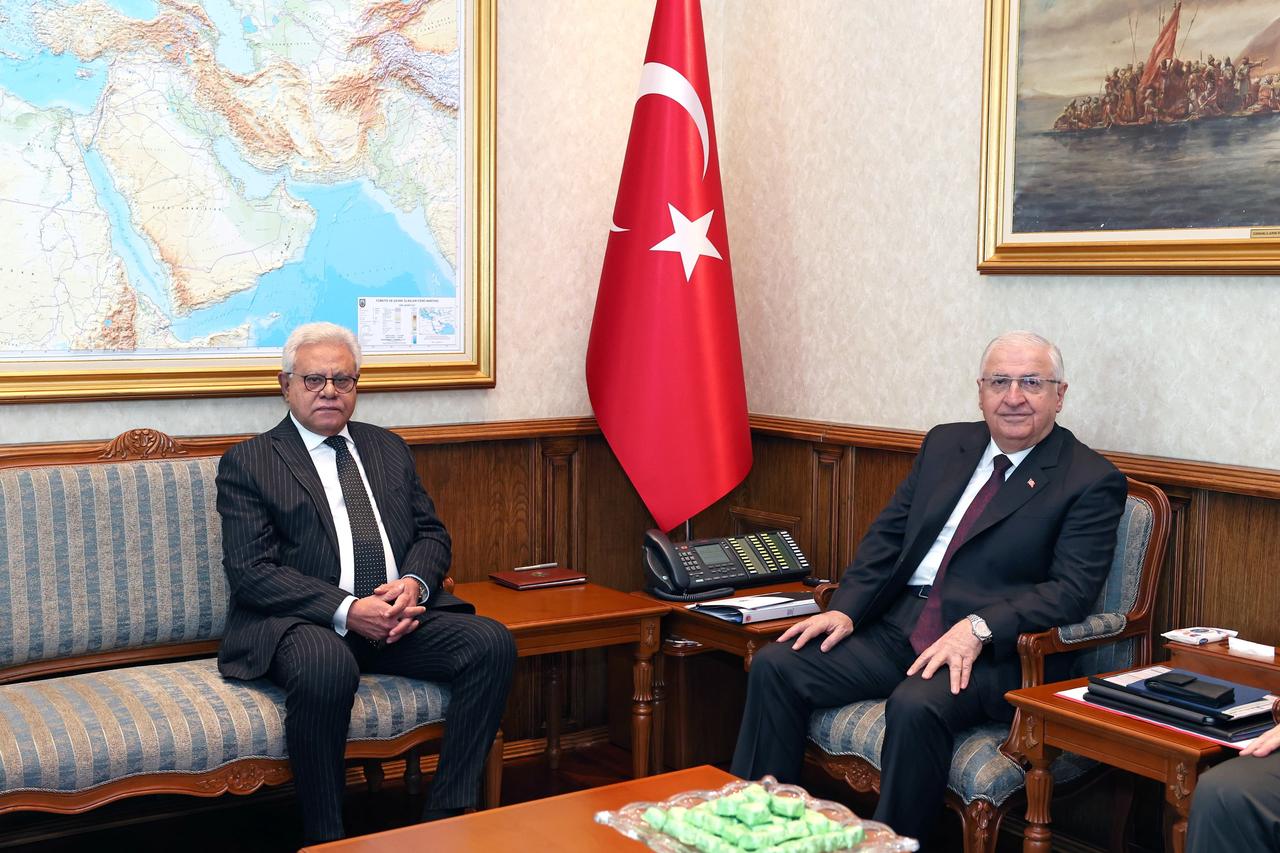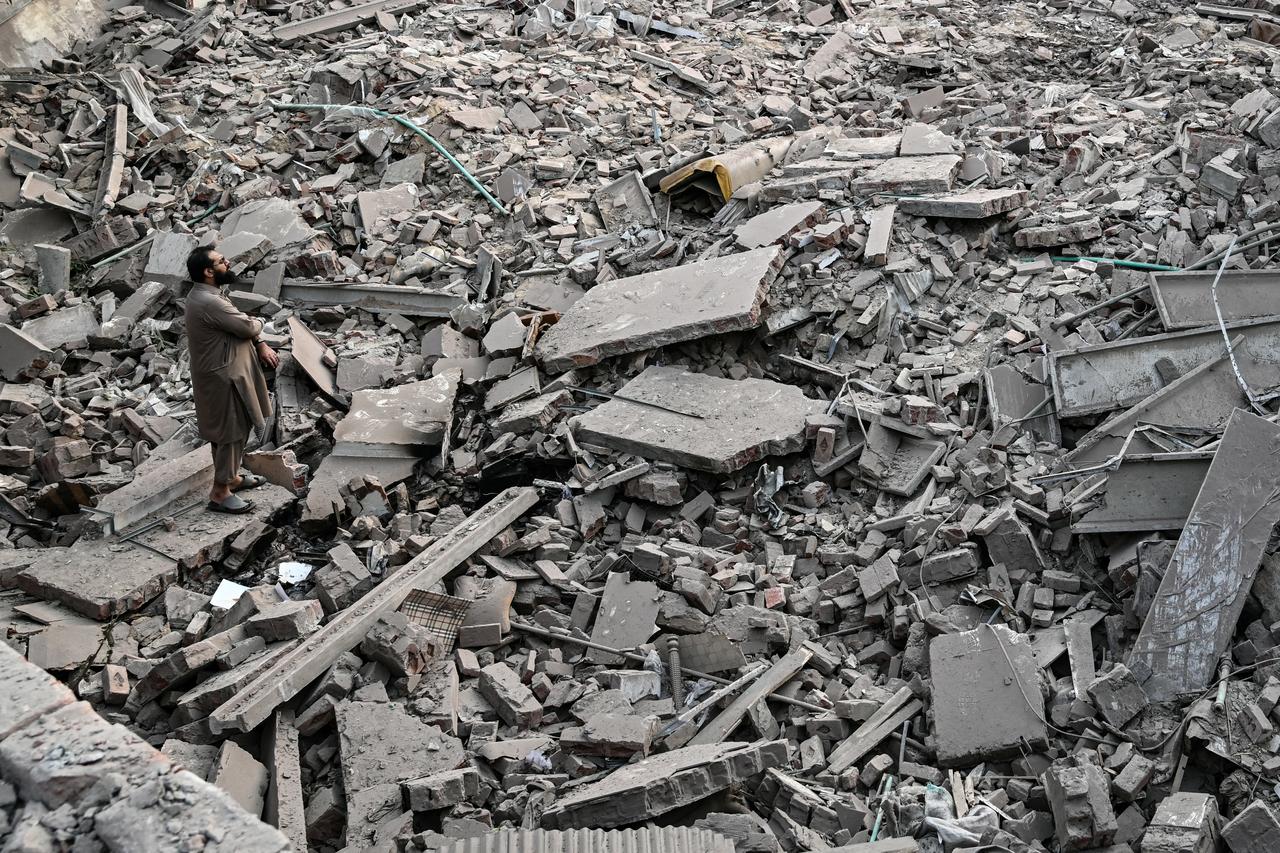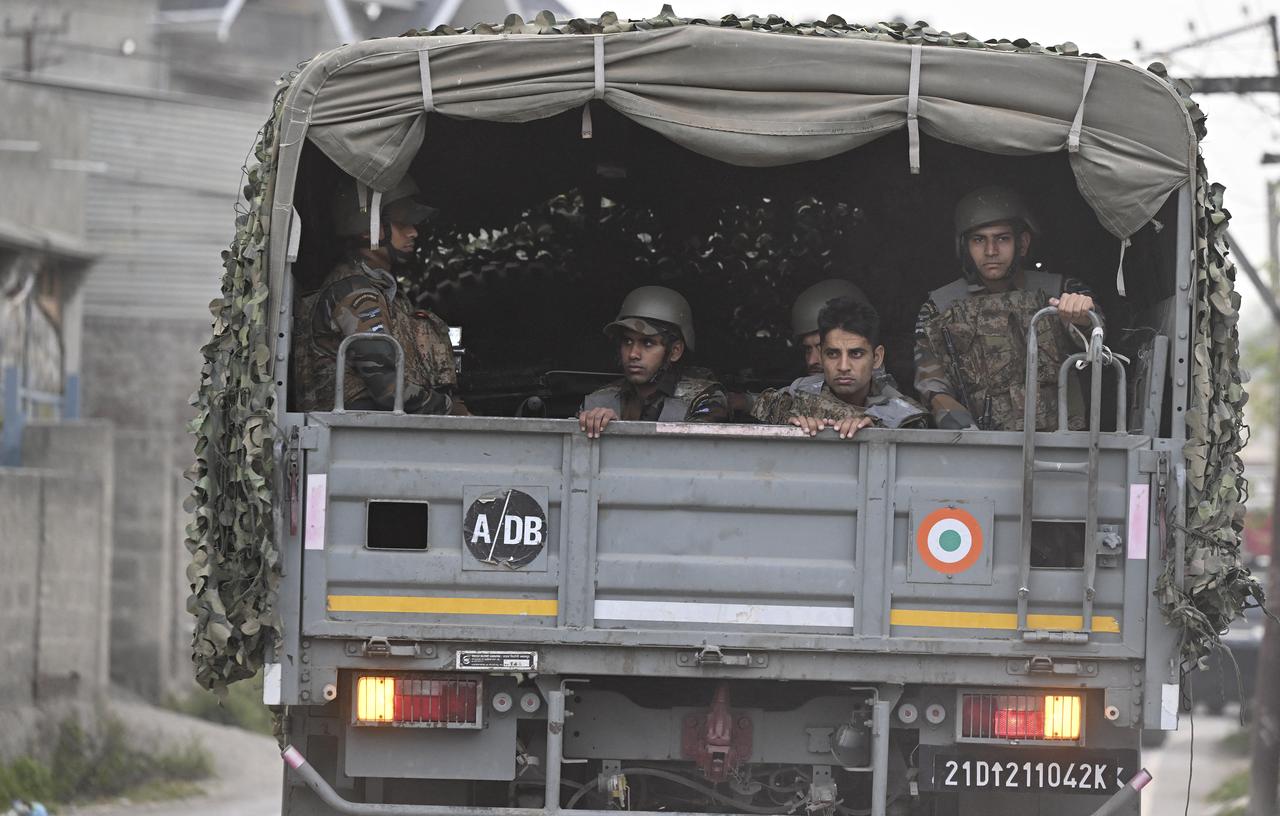
Turkish National Defense Minister Yasar Guler received Pakistan’s Ambassador to Türkiye Yusuf Junaid in Ankara, the Ministry of Defense confirmed Friday via social media. The meeting comes at a time of mounting tensions in South Asia, as deadly border clashes continue between India and Pakistan.
The ministry referred to Pakistan as a "friendly and brotherly country" in its post, and a photograph of the meeting was shared. No further details were provided about the content of the discussions.
On the night of May 8, a new round of cross-border fire along the Line of Control (LoC) between Pakistan- and India-administered Kashmir resulted in at least five civilian deaths, local security sources reported. Four of the victims were on the Pakistani side in Azad Kashmir, with one civilian death and two injuries reported on the Indian side.
The skirmishes follow India’s missile attacks on May 6 in response to an April 22 terrorist attack in Pahalgam that killed 26 people. The Indian army said it targeted nine "terror infrastructure" sites, while Islamabad reported civilian casualties at six locations, totaling 31 dead and 57 injured.

Pakistan’s Prime Minister Shehbaz Sharif accused India of violating Pakistan’s sovereignty and pledged that his country would exercise its right to self-defense under Article 51 of the U.N. Charter.
Pakistan’s Ambassador to Washington Rizwan Saeed Sheikh told CNN that while Islamabad reserves the right to respond, the responsibility to de-escalate now lies with New Delhi. He confirmed that some communication is ongoing between the two sides, potentially at the level of national security councils
"I think there have been contact at the level of NSCs, but then this escalation, both in terms of the actions that have been taken and in terms of rhetoric that is coming out, has to stop," Sheikh said in the interview without giving more details about the contacts.
"Now the responsibility for de-escalation is on India, but there are constraints on restraint. Pakistan reserves the right to respond back. There is enough pressure from our public opinion on the government to respond," he added.

In New Delhi, Indian Foreign Minister Subrahmanyam Jaishankar warned that any future military actions by Pakistan would be met with “very harsh” retaliation. He defended India’s recent missile strikes as a response to cross-border terrorism and stated that New Delhi is not seeking further escalation—but is prepared for it.
In a show of solidarity, Azerbaijan’s Foreign Minister Jeyhun Bayramov spoke with Pakistan’s Foreign Minister Ishaq Dar, expressing condolences for the civilian casualties and condemning the missile attacks. He urged both countries to resolve their differences through diplomacy and avoid further escalation.